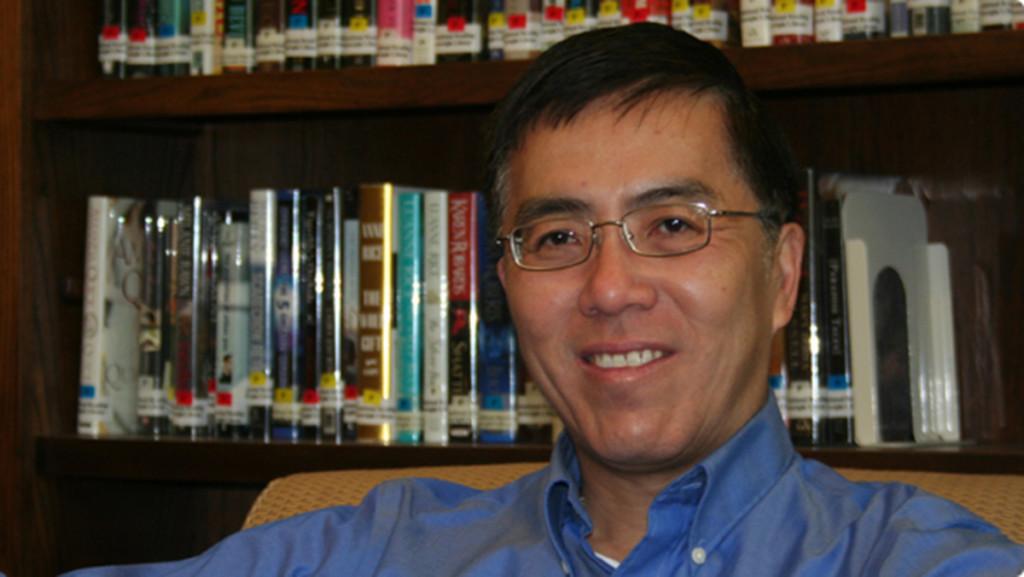Vincent Wei-Cheng Wang was selected Jan. 25 to be the new dean of the Ithaca College School of Humanities and Sciences. He will start at the college in the summer, coming from the University of Richmond, where he currently serves as associate dean of the School of Arts and Sciences and professor in the Department of Political Science.
Staff Writer Annika Kushner spoke with Wang to discuss his immediate goals as dean, the challenges he will face moving into his new job and his stance on the important issues now faced by the H&S School.
Annika Kushner: It was a long interview process. How did you start to view Ithaca College differently as you became more familiar with the school?
Vincent Wang: Well, I think Ithaca College has a lot to offer, beginning with its people. And my feeling is that the college is a very tight-knit community with a lot of heart. So the people — the faculty, the students, staff and the alumni — seem to have very strong attachment to the college. But of course, I was also interviewed in a time of turmoil, to put it mildly. … The fact that they showed the challenge and the turmoil the college was facing to me and the other candidates shows how big a heart it has. It’s not shying away from the challenge.
AK: You’ve spoken about the college’s challenges regarding diversity and inclusion before, and the H&S faculty were some of the most outspoken on those issues. What kind of action do you think you’ll be able to take to help improve the campus climate?
VW: I think that improving the climate is definitely one of my priorities — in the first year, and probably very soon. But I think it needs to be looked at in the context of what I hope to accomplish initially. … My three goals are to know the people, to know the program, to know the resources. … So to answer your question about diversity and inclusion, all three things actually pertain to that. … I want to think very creatively and proactively about accelerating faculty diversity through recruitment in order to meet the needs of students in a changing time.
I want to think more about the so-called high-impact practices suitable for Ithaca College given its cultural and fiscal environment. Many of these so-called high-impact practices such as first year seminar, learning community, study abroad, student research, internship and other experiential learning opportunities exist already. … We need to think about whether there are some barriers — intentional or unintentional barriers — that prevent everybody from taking advantage of the great programs we offer.
AK: You’ve spoken about the importance of international experiences and undergraduate research in the past. Why do you think that is so valuable?
VW: Future employers very strongly and convincingly tell us that they value such skills. … An Ithaca student with an international competency will have an edge. Undergraduate research is about having an intellectual passion and curiosity about these subjects, and … they pull everything together in a final professional conversation. This tells employers and graduate schools that this student does not only have the intellectual aptitude, but also the skills to solve complex problems.
AK: How do you intend to handle faculty governance?
VW: I intend to involve faculty, or their representatives, in the most important decisions facing the school. … These are very smart people. But they are also busy people. So I will … engage them in helping the dean make the decisions that reflect the collective expertise of the faculty we have, but are also in the best interests of the school.
AK: Regarding diversity and inclusion, you said that would be part of your getting to know the institution, the students and faculty. Do you have any idea what kind of action you’ll be able to take in this area?
VW: I know that the college is already in the process of responding to many of the specific recommendations or requests by the various constituents on campus. So I would need to know more about how these new programs or initiatives are to work before I duplicate them. Of course, if there’s a collegewide initiative that is very well intentioned, very well designed and well supported, then yes — I will need to duplicate it, and I will do my best to support it, to facilitate it. But if there is something lacking, then I would definitely make my views heard at the leadership council.














